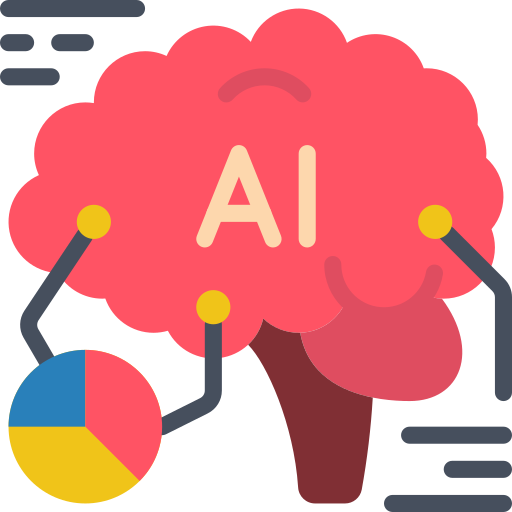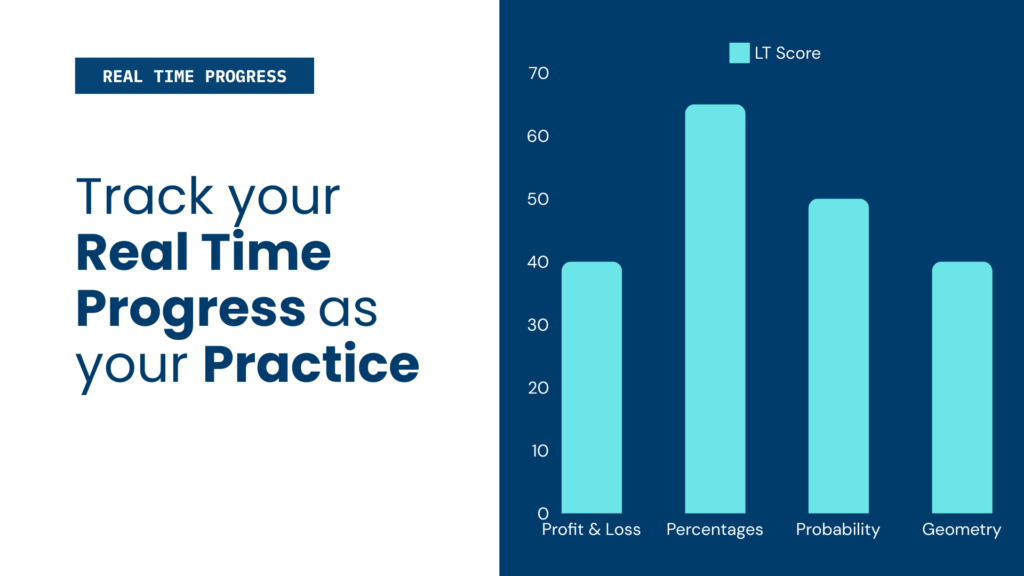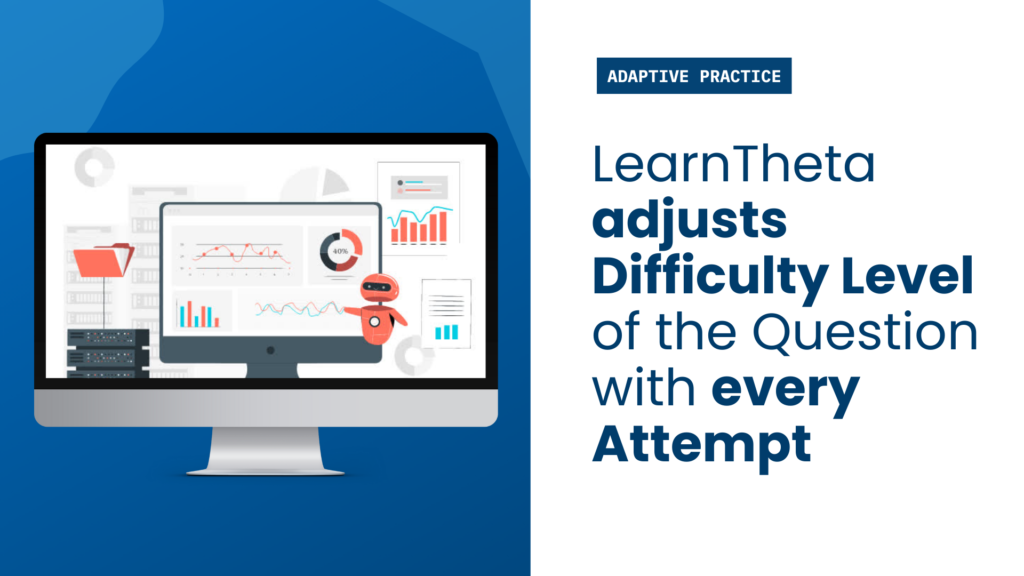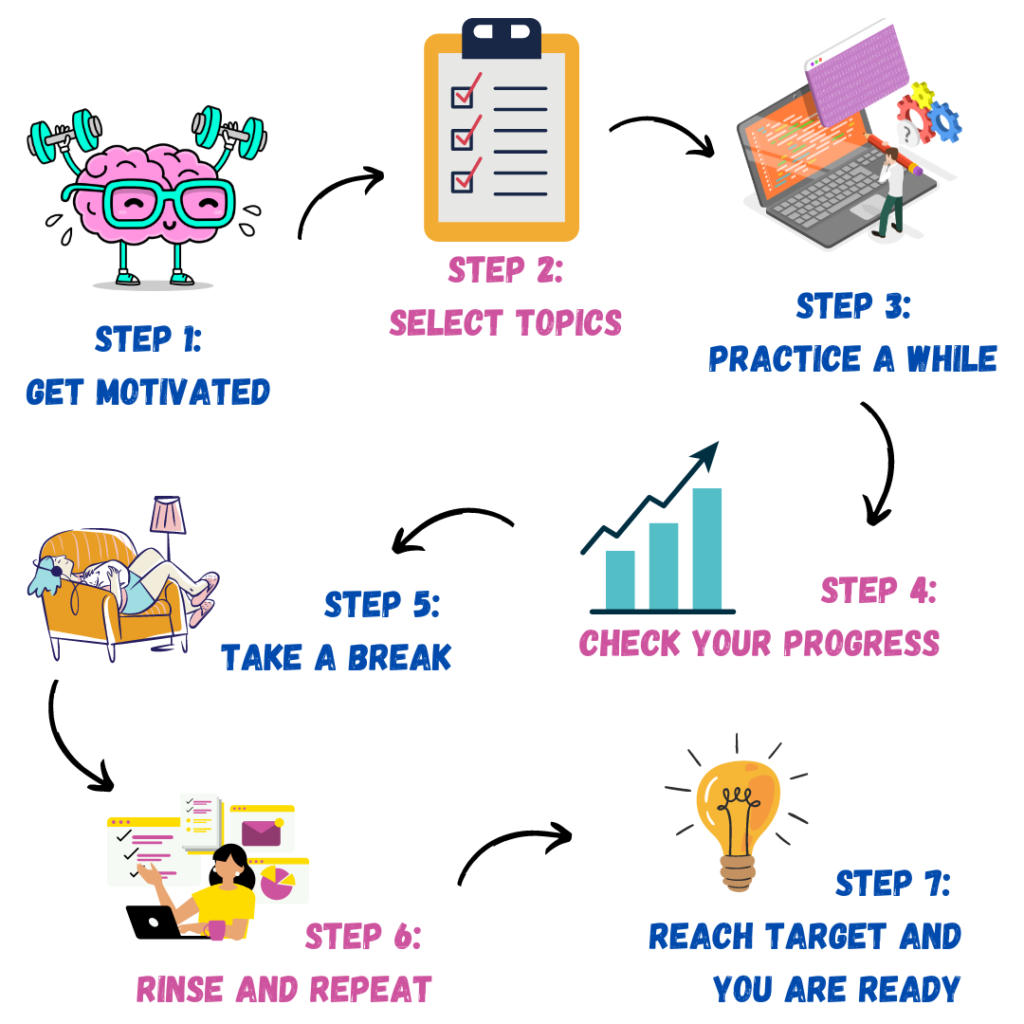Improve CAT Quant Percentile with AI Practice Platform

Adaptive Question Practice

Real Time Progress

Faster Improvement
Practice, Improve, Repeat!
Adaptive Mock Question Practice for CAT Quant Preparation


A Platform for Sincere Practice & Improvements
LearnTheta provides personalized practice with live score, helping you make daily progress to bell the CAT
- Adaptive Practice customizes each question to your abilities
- Practice from vast collection of CAT questions
- Track your real time progress, strengths and areas of improvement
- Benefit from questions shaped by CAT experts
- Practice anytime, anywhere and pick up from where you left off last time
Check Our Demo
How to use LearnTheta?

About CAT
The Common Admission Test (CAT) is one of India’s most competitive entrance exams. Popular among students, CAT presents a doorway to the prestigious IIMs and top-ranked B-schools. An MBA degree from these institutes can open up a world of opportunities, offering lucrative careers in business with high-paying jobs
Read More about CAT
CAT Overview: https://www.learntheta.com/common-admission-test-overview/
CAT Syllabus, Pattern, Eligibility and Scoring: https://www.learntheta.com/cat-syllabus-pattern-eligibility-scoring/
CAT Registration Process: https://www.learntheta.com/cat-registration-process/
CAT Preparation Resources: https://www.learntheta.com/cat-prep-resources/
How to do self study for CAT: https://www.learntheta.com/self-study-for-cat/
MBA Entrance Exams beyond CAT: https://www.learntheta.com/mba-entrance-exams-beyond-cat/
CAT 2024 – Quantitative Aptitude Syllabus
The CAT exam is known for being highly competitive, and students often find the CAT Quantitative Aptitude section to be the most tricky and challenging. Based on mathematical questions, it tests a student’s speed, accuracy, and numerical skills. If you want to score high, it becomes imperative for you to be thorough with practice. With LearnTheta, you can do your CAT Quant prep online and nail your exams.
Refer topic wise syllabus here
- Natural, Whole, Integers, Rational and Irrational numbers
- HCF and LCM
- Prime Numbers and Factorization
- Decimal representation and Rounding off
- Arithmetic Progression (AP)
- Geometric Progression (GP)
- Harmonic Progression (HP)
- Sum of Series
- Computing Average
- Weighted Average
- Mixture and Alligation problems
- Percentage Increase/Decrease
- Successive Percentage Change
- Applications of Percentages
- Direct and Inverse Proportions
- Componendo and Dividendo
- Variations
- Word Problems
- Cost Price, Selling Price, and Marked Price
- Profit Percentage and Loss Percentage
- Discounts and Markups
- Calculation of Simple Interest
- Calculation of Compound Interest
- Installments
- Work Efficiency
- Work done by Pipes and Cisterns
- Time taken by Multiple People/Entities working together
- Average Speed
- Relative Speed
- Problems on Trains and Boats
- Lines and Angles
- Triangles and their properties
- Circles and their properties
- Quadrilaterals and Polygons
- Area and Perimeter of 2D shapes
- Surface Area and Volume of 3D shapes
- Distance and Section formulas
- Equation of Lines
- Circles in Coordinate Geometry
- Domain and Range
- Types of Functions: Linear, Quadratic, etc.
- Graphs of Functions
- Linear Inequalities
- Quadratic Inequalities
- Inequalities in Modulus
- Linear Equations
- Quadratic Equations: Roots and Discriminant
- Properties of Logarithms
- Change of Base
- Application in Exponential and Power problems
- Fundamental Principle of Counting
- Arrangements and Selections
- Circular Permutations
- Basic Probability Concepts
- Conditional Probability and Bayes’ Theorem
- Probability Distributions
- Basic Definitions: Union, Intersection, Subset, etc.
- Venn Diagrams and their applications
- Operations on Sets
- Measures of Central Tendency: Mean, Median, Mode
- Measures of Dispersion: Variance and Standard Deviation
- Range, Quartiles, and Interquartile Range
Additional Free Resources for CAT by LearnTheta
Please follow the link for CAT Quant Free Mock Tests : https://www.learntheta.com/cat-free-mock-test-quant/
CAT 2023 Quant Paper with Solutions: https://www.learntheta.com/cat-quant-papers-with-solutions/
CAT Previous year Papers (2017-23): https://www.learntheta.com/cat-previous-year-papers/
Frequently Asked Questions (FAQs)
What is the “CAT Quantitative Aptitude” course about?
The “CAT Quantitative Aptitude” course on LearnTheta is designed to help CAT aspirants master the quantitative section of the CAT examination. It provides a comprehensive collection of practice questions that cover all the topics and concepts tested in the exam. Leveraging our unique adaptive practice methodology, students get a tailored experience — the platform adjusts question difficulty based on individual performance. This ensures that learners are consistently challenged, solidifying their grasp on core concepts while addressing areas that need improvement. With our course, you not only practice but also gain insights into your strengths and areas of enhancement, empowering you to optimize your preparation strategy and achieve your desired percentile.
How is the content for this course curated?
The content for our “CAT Quantitative Aptitude” course is meticulously curated by a team of seasoned CAT professionals, educators, and subject matter experts. We’ve blended their in-depth knowledge with advanced algorithmic insights to craft questions that resonate with the CAT’s standards. To ensure the quality and relevance of every question, our experts go through iterative reviews and updates. Moreover, we continuously gather feedback from our user community and incorporate their insights. This dual approach of expert curation and user feedback ensures our course remains up-to-date, challenging, and aligned with the evolving dynamics of the CAT examination.
How does the adaptive practice work specifically for the quantitative aptitude section? How does LearnTheta’s algorithm adjust the question difficulty?
Our adaptive practice system for the “CAT Quantitative Aptitude” section operates on a dynamic algorithm that responds to your individual performance in real-time. When you answer questions correctly, the system recognizes your proficiency and gradually presents you with more challenging questions, pushing your boundaries. Conversely, if you make mistakes or find certain topics challenging, the algorithm adjusts by offering questions that help reinforce those specific concepts, ensuring a better grasp. This way, every student gets a tailored learning experience, always focusing on their immediate needs and adapting to their learning pace. The goal is to ensure a holistic understanding of the quantitative aptitude section, optimizing strengths and addressing weak points efficiently.
What kind of questions can I expect in the course?
In the “CAT Quantitative Aptitude” course, you can expect a diverse range of questions that mirror the content and complexity of the actual CAT exam. The questions span across all major topics such as Number Systems, Arithmetic, Algebra, Geometry, Mensuration, and Data Interpretation. From basic foundational problems to challenging high-order thinking questions, our course is designed to give you a comprehensive practice experience. Each question is formulated to test various facets of quantitative aptitude, ensuring that you are well-prepared for all potential question types and scenarios you might encounter in the actual CAT exam. Moreover, with our adaptive approach, the mix of questions you receive is continually optimized based on your performance and evolving needs.
How many questions does the “CAT Quantitative Aptitude” course offer?
The “CAT Quantitative Aptitude” course on LearnTheta boasts an extensive database with millions of questions. This vast reservoir ensures that students get a fresh set of challenges every time they practice, making repetition and predictability a thing of the past. Our goal is to provide ample practice opportunities, covering every concept, difficulty level, and question type that the CAT might present. This immense question bank, combined with our adaptive algorithm, offers a unique and thorough preparation experience for every CAT aspirant.
Are the questions aligned with the latest CAT exam pattern? How often is the course content updated?
Absolutely! We prioritize staying updated with the latest CAT exam patterns and trends. Our team of CAT professionals and educators continually monitor changes and updates in the CAT examination. As a result, the questions in our “CAT Quantitative Aptitude” course are not only aligned with the current exam format but are also reflective of the evolving nature and difficulty of the exam. We ensure that our students get a realistic practice experience, preparing them effectively for what they will encounter on the actual test day.
Do I receive instant feedback on my performance in this course? What analytics or insights will I receive regarding my performance?
Yes, one of the standout features of LearnTheta’s “CAT Quantitative Aptitude” course is the real-time feedback mechanism. As soon as you answer a question, the platform provides immediate feedback on your response. Not only will you know if your answer was correct or not, but you’ll also receive detailed solutions and explanations for every question. This instant feedback is paired with our analytics dashboard, which offers deeper insights into your strengths, areas of improvement, time taken per question, and overall progress. The aim is to provide you with a comprehensive understanding of your performance, enabling you to fine-tune your preparation strategy effectively.
Can I practice specific topics within the quantitative aptitude section?
Yes, absolutely! LearnTheta’s “CAT Quantitative Aptitude” course is designed with flexibility in mind. We understand that every student might have unique needs or areas they want to focus on more intensely. Therefore, within the course, you can select specific topics or sub-topics within the Quantitative Aptitude section, such as Number Systems, Algebra, Geometry, or any other topic. This feature allows you to target and hone in on particular areas, ensuring that you get the practice you need precisely where you need it. Whether you’re looking to reinforce a newly learned concept or challenge yourself in a domain you’re confident in, our platform adapts to your preferences.
Are detailed solutions provided for every question in the quantitative aptitude course?
Yes, every question in our “CAT Quantitative Aptitude” course comes with a detailed solution. We believe that simply knowing the right answer isn’t enough; understanding the reasoning and methodology behind it is crucial for genuine learning. Our solutions are crafted to be thorough and explanatory, breaking down each step of the process. This approach ensures that you not only get clarity on the problems you might have answered incorrectly but also solidify your understanding of the ones you got right. By offering insights into multiple methods or shortcuts, we aim to equip you with diverse problem-solving strategies, enhancing your overall efficiency and adaptability during the exam.
Can I access the course on both desktop and mobile devices?
Yes, you can! LearnTheta’s “CAT Quantitative Aptitude” course is designed to be accessible and user-friendly across a variety of devices. Whether you’re on a desktop, laptop, tablet, or mobile phone, the course adapts seamlessly to your screen size, ensuring a consistent and optimized learning experience. Our platform’s responsive design ensures that all features, from question-solving to analytics, are easily navigable no matter the device. This flexibility allows you to practice and learn on-the-go or in the comfort of your home, ensuring your preparation isn’t hampered by device limitations. We recommend using the latest browsers for the best experience.
How does this course compare to other CAT preparation platforms?
LearnTheta’s “CAT Quantitative Aptitude” course stands out in several key areas:
Adaptive Practice: Unlike many platforms that offer a static set of questions, our adaptive algorithm ensures that you’re always challenged at the right level. The course responds in real-time to your performance, pushing you with tougher questions when you excel and offering supportive questions when you falter.
Depth of Content: With millions of questions in our database, you’ll experience a vast range of question types, ensuring a comprehensive preparation that leaves no topic untouched.
Expert-Crafted Questions: Our questions are inspired by the highest CAT standards and are meticulously crafted by professionals who deeply understand the nuances of the exam.
Real-time Analytics: Our platform goes beyond just giving you the right answers. With immediate insights, you can track your strengths, areas of improvement, and progress over time, giving you a clear roadmap for your preparation.
Flexibility: LearnTheta offers unparalleled flexibility, allowing you to practice on your terms, anytime, anywhere, and on any device.
Comprehensive Solutions: We believe in understanding the ‘why’ behind every answer. Our detailed solutions ensure that you grasp the underlying concepts, strategies, and shortcuts.
Continuous Updates: We are committed to staying updated with any changes in the CAT pattern or syllabus. This ensures that our content remains relevant, up-to-date, and in line with the actual exam expectations.
While there are many CAT preparation platforms out there, LearnTheta’s commitment to quality, innovation, and student success sets us apart. We aim not just to help you pass an exam but to truly master the content and skills required.
Refer our Placement Aptitude course: https://www.learntheta.com/placement-aptitude/

“It always seems impossible until it’s done.” — Nelson Mandela